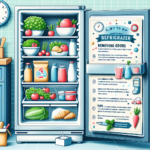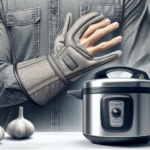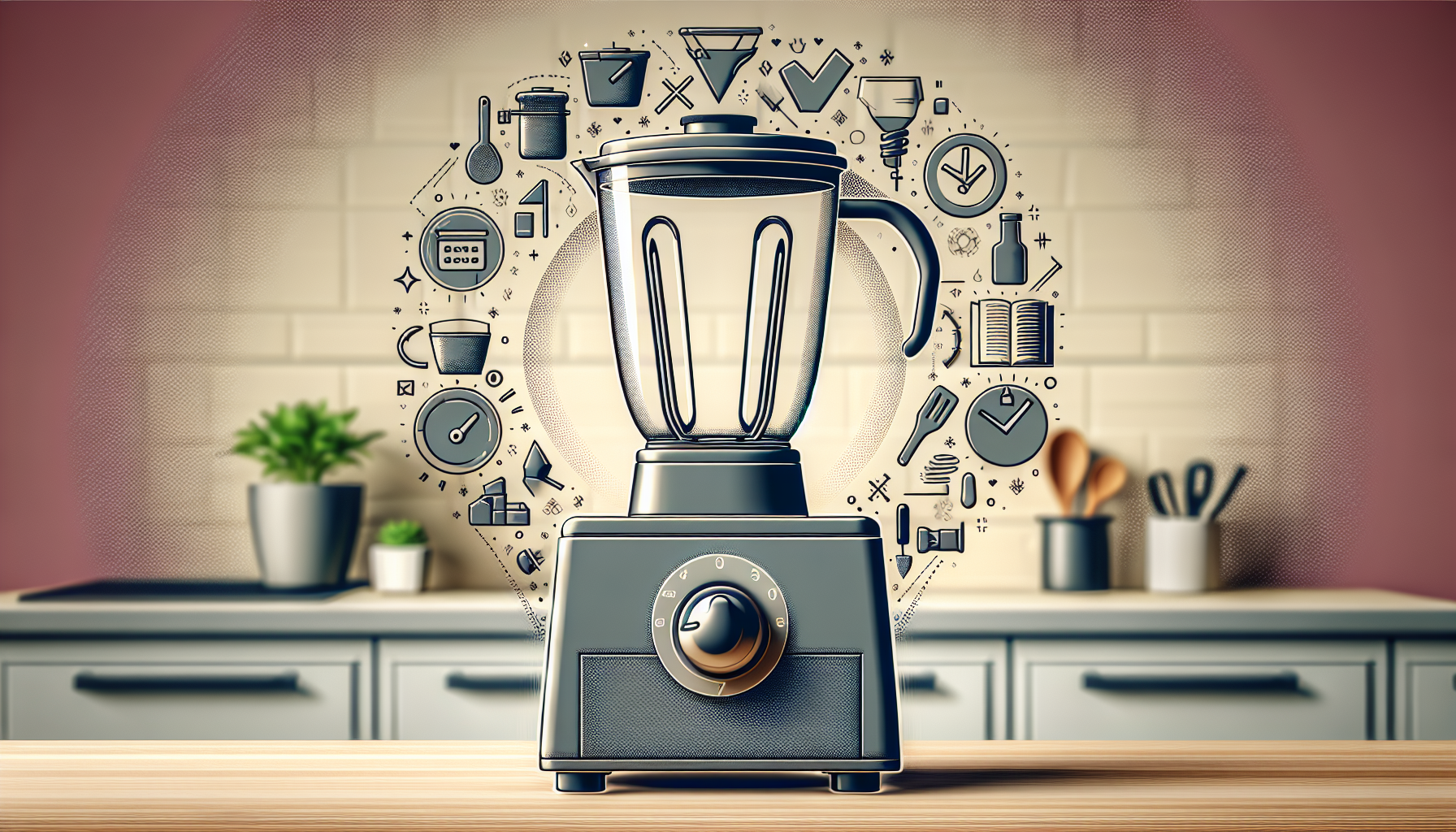
You rely on your small kitchen appliances to ease the process of food preparation and make your life in the kitchen a whole lot easier. But have you ever wondered how to extend their lifespan and keep them working optimally for longer? With some simple tips and tricks, you can make sure that your small kitchen appliances last for years to come, saving you both money and frustration. From regular cleaning and maintenance to using them properly and storing them correctly, we’ve got you covered. So let’s dive in and discover how you can keep your beloved small kitchen appliances in top-notch condition for as long as possible.
Regular Cleaning
Keeping your small kitchen appliances clean is crucial for their longevity and optimal performance. Here are some tips to help you maintain their cleanliness:
Wipe down the exterior after each use
After each use, take a damp cloth or sponge and wipe down the exterior of your appliance. This will help remove any food debris, stains, or spills that may have accumulated during the cooking process. By doing this regularly, you prevent the buildup of grime and make it easier to clean later on.
Clean the interior regularly
While wiping down the exterior is important, don’t forget about the interior. Depending on the appliance, you may need to clean the interior frequently to remove any leftover food particles or residue. Follow the manufacturer’s instructions on how to properly clean the interior of your appliance. This will help prevent the growth of bacteria and ensure that your food is cooked or prepared in a hygienic environment.
Remove and clean removable parts
Many small kitchen appliances come with removable parts that are dishwasher safe. It is essential to remove these parts and clean them separately to ensure thorough cleanliness. This includes items such as blender blades, mixing bowl attachments, or coffee machine filters. By removing and cleaning these parts regularly, you prevent the buildup of dirt and residue, ensuring the appliance functions optimally for years to come.
Proper Use and Handling
Using your small kitchen appliances correctly is vital in extending their lifespan. Here are some guidelines to follow for proper use and handling:
Follow the appliance’s instruction manual
Every appliance comes with an instruction manual for a reason. It provides valuable information on how to use and care for your appliance correctly. Take the time to read and understand the manual before using the appliance. Following the manufacturer’s instructions will help you avoid any misuse or damage to the appliance, ensuring its longevity.
Avoid overloading the appliance
Each appliance has its own capacity limitations. Overloading the appliance with too much food or exceeding the recommended weight can strain the motor, heating elements, or other components. This can lead to premature wear and tear or even irreversible damage. Be mindful of the recommended capacity and avoid overloading your appliance to prolong its lifespan.
Use the correct type of utensils
Using the wrong utensils can also contribute to the wear and tear of your small kitchen appliances. Certain materials, such as metal or abrasive utensils, can scratch or damage the surfaces of your appliances. Always use utensils that are recommended by the manufacturer to ensure safe and proper use. This simple step can go a long way in maintaining your appliance’s performance and aesthetics.
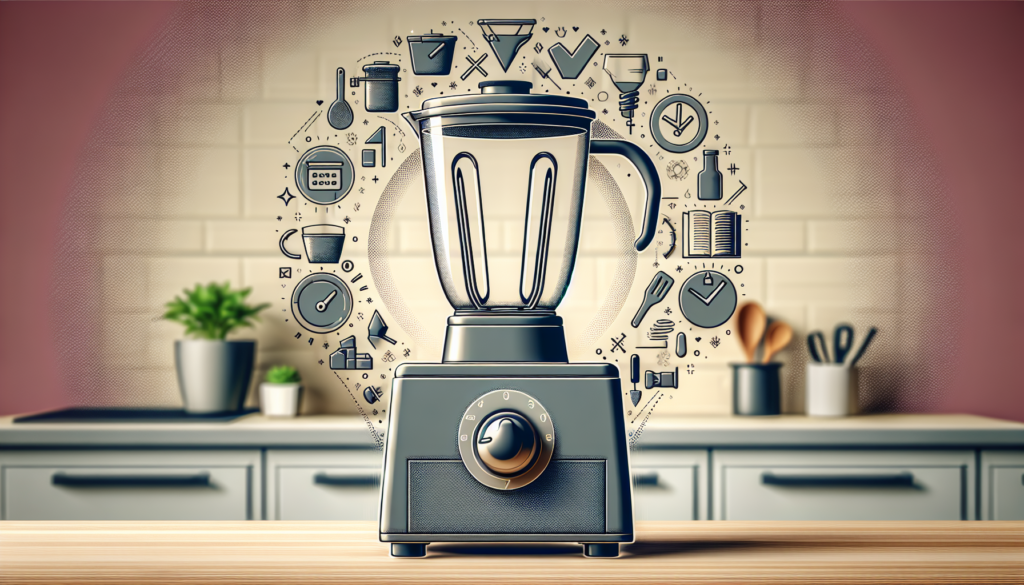
Storage and Maintenance
Proper storage and regular maintenance are vital in preserving the lifespan of your small kitchen appliances. Follow these guidelines for effective storage and maintenance:
Store the appliance in a dry and clean location
After using your appliance, make sure it is completely dry before storing it. Moisture can lead to the growth of mold or corrosion, potentially damaging the internal components. Additionally, store your appliances in a clean and dust-free area to prevent any buildup that can affect their functionality. Storing them in a well-ventilated space will also prevent the accumulation of unpleasant odors.
Regularly check for and replace worn-out cords
Inspect the power cord of your small kitchen appliances regularly for any signs of fraying, cracking, or exposed wires. If you notice any damage, it is crucial to replace the cord immediately. A damaged power cord can pose a safety hazard and may require professional repairs. By replacing worn-out cords promptly, you ensure the safety of both yourself and your appliance.
Keep the appliance away from water and heat sources
Water and heat are two common enemies of small kitchen appliances. Avoid placing your appliances near water sources, such as sinks or areas prone to splashes. Make sure to keep them away from direct heat sources, such as stovetops or ovens, as excessive heat can damage the internal components. By keeping your appliances away from water and heat sources, you protect them from potential damage and enhance their lifespan.
Avoiding Overuse and Overheating
Overusing your small kitchen appliances or subjecting them to excessive heat can significantly shorten their lifespan. Here’s how you can avoid overuse and overheating:
Give the appliance time to cool down between uses
After using your appliance, allow it to cool down completely before using it again or storing it. Heat buildup can strain the components and shorten their lifespan. By giving your appliance the necessary time to cool down, you prevent overheating and promote optimal performance.
Avoid continuous and extended use
Small kitchen appliances are designed for intermittent use rather than continuous operation. Prolonged use can cause the motor or heating elements to overheat, leading to damage. Be mindful of the recommended usage time provided by the manufacturer and take breaks between usage periods. This will give your appliance a chance to cool down and prevent excessive wear and tear.
Avoid overheating by monitoring the appliance
While using your small kitchen appliances, keep an eye on them to ensure they are not overheating. Excessive heat can be a warning sign of a malfunctioning appliance. If you notice unusual heat or any burning smells, immediately turn off and unplug the appliance. Contact a professional for inspection and repairs to avoid further damage or safety risks.
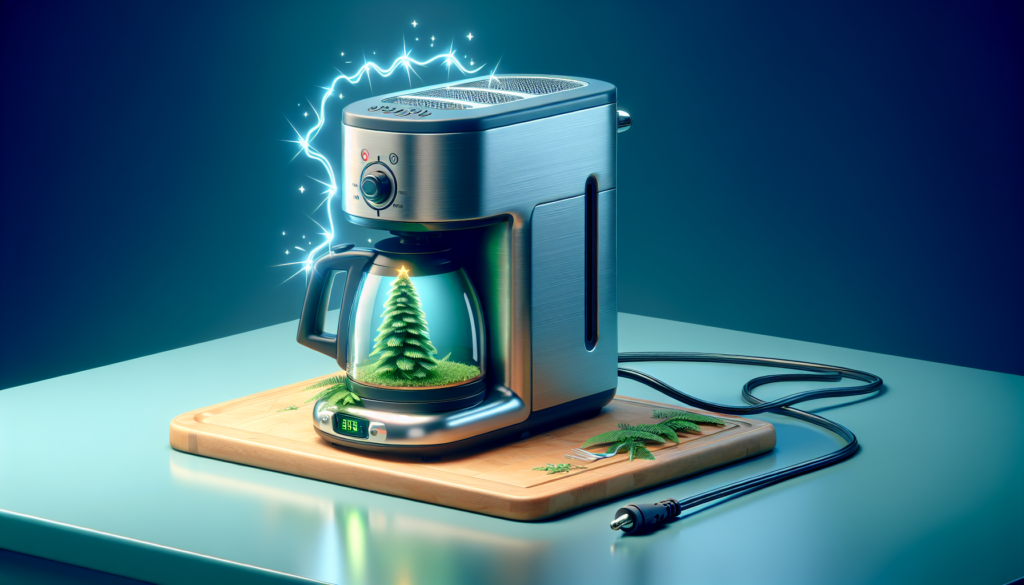
Safe Cleaning Methods
When it comes to cleaning your small kitchen appliances, it is important to use safe and appropriate cleaning methods. Follow these guidelines to ensure effective and gentle cleaning:
Unplug the appliance before cleaning
Before cleaning any small kitchen appliance, always unplug it from the power source. This reduces the risk of electric shock and ensures your safety during the cleaning process. Once it is safely disconnected from the power supply, you can proceed with the cleaning.
Avoid using abrasive cleaners
To prevent scratching or damaging the surfaces of your appliances, avoid using abrasive cleaners or scrub brushes. Instead, opt for gentle cleaning methods that won’t compromise the integrity of the appliance. Microfiber cloths, soft sponges, or non-abrasive cleaning solutions are suitable options for most appliances.
Use mild dish soap and warm water for cleaning
For general cleaning, mild dish soap and warm water are effective options. Dilute the soap in water and use a sponge or cloth to gently scrub the surfaces. Rinse thoroughly with clean water and ensure that no soap residue remains. This gentle cleaning method removes dirt and grime without causing any harm to your appliances.
Proper Power Supply
Proper power supply is crucial for the optimal functioning and longevity of your small kitchen appliances. Follow these guidelines to ensure that you provide the right power supply:
Use the recommended voltage and wattage
Check the appliance’s specifications and ensure that you provide it with the correct voltage and wattage. Using higher or lower voltage than recommended can damage the internal components and may even pose a safety hazard. Make sure that your outlets provide the appropriate power supply before connecting your appliances.
Avoid using extension cords or adapters
While it may be tempting to use extension cords or adapters for convenience, it is best to avoid them whenever possible. Extension cords can increase the risk of electrical hazards, especially if not properly grounded. Opt for outlets near the appliance’s location to reduce the need for additional cords or adapters.
Check the power supply regularly
Periodically inspect the power supply and cords of your small kitchen appliances for any signs of wear or damage. Ensure that the cords are securely connected and not frayed or cracked. If you notice any issues, promptly address them by replacing the cords or seeking professional assistance. Regularly checking the power supply minimizes the risk of electrical problems and enhances the longevity of your appliances.
Regular Inspections
Regular inspections are crucial for identifying any potential issues with your small kitchen appliances. Follow these steps to conduct routine inspections:
Check for loose parts or screws
Inspect your appliance for any loose parts or screws that may have come undone during use. Tighten them securely to prevent any further damage or potential hazards. Loose parts can cause malfunctions, noise, or even accidents. By regularly checking and tightening them, you ensure the safe and reliable performance of your appliance.
Inspect the electrical components
Inspect the electrical components of your appliances, such as switches or controls, for any signs of damage or malfunction. If you notice anything unusual, such as flickering lights or erratic behavior, it is crucial to have a professional inspect and address the issue. Electrical problems can be dangerous and should be resolved promptly.
Ensure the appliance is functioning properly
Perform a functional check on your small kitchen appliances to ensure they are working as intended. Test each function or setting to make sure it operates smoothly. If you notice any irregularities, such as inconsistent heating or abnormal sounds, it may indicate a problem. Contact a professional for diagnosis and necessary repairs to avoid further damage.
Preventative Maintenance
Preventative maintenance plays a vital role in extending the lifespan of your small kitchen appliances. Follow these tips to keep your appliances in optimal condition:
Oil moving parts as necessary
Some small kitchen appliances, such as blenders or food processors, have moving parts that require lubrication. Consult the manufacturer’s instructions to determine if oiling is necessary. Using the recommended lubricant, apply a small amount to the designated areas to ensure smooth and friction-free operation. Preventative maintenance prevents unnecessary wear and tear on these components.
Lubricate any hinges or joints
For appliances with hinges or joints, such as toaster ovens or stand mixers, regular lubrication is essential. Over time, these areas can become stiff or squeaky, affecting the overall performance. Apply a small amount of food-grade lubricant to the hinges or joints as recommended by the manufacturer. This preventative measure keeps these parts in good working condition and prolongs their lifespan.
Keep the appliance well-lubricated
While it may not apply to all appliances, keeping your small kitchen appliances well-lubricated is a good practice. Check if any other moving parts require lubrication and apply the appropriate lubricant as recommended. This helps reduce friction, noise, and unnecessary strain on the components.
Protecting from Physical Damage
To protect your small kitchen appliances from physical damage, follow these guidelines:
Avoid dropping or banging the appliance
Accidents happen, but avoiding dropping or banging your appliances can prevent unnecessary damage. Treat your appliances with care and handle them gently during use, cleaning, and storage. Even a single drop or impact can cause internal damage or break sensitive components.
Use protective covers or cases when not in use
When your appliances are not in use, it is advisable to store them in protective covers or cases. This safeguards them from dust, scratches, or accidental bumps. Many appliances come with their own covers, but if not, consider investing in suitable covers or cases to extend the lifespan of your appliances.
Handle the appliance with care
Whether you are moving, transporting, or simply using your appliances, handle them with care. Avoid yanking cords, forcefully pushing buttons, or mishandling them in any way. Treating your appliances gently ensures their longevity and prevents any unnecessary damage.
Professional Servicing
While regular cleaning and maintenance can significantly extend the lifespan of your small kitchen appliances, there may come a time when professional servicing is necessary. Consider the following:
Schedule regular maintenance with a professional
To ensure that your appliances are functioning optimally, it is beneficial to schedule regular maintenance with a professional. They can inspect and service your appliances, identifying any potential issues before they escalate. This proactive approach not only prolongs the lifespan of your appliances but also helps you avoid costly repairs or replacements.
Get the appliance repaired by an authorized technician
If your small kitchen appliance experiences a malfunction or requires repairs, it is essential to seek assistance from an authorized technician. While it may be tempting to try fixing the issue yourself, it can void your warranty or potentially worsen the problem. Authorized technicians have the necessary knowledge and expertise to diagnose and repair your appliance correctly.
Ask for expert advice and guidance
If you have any doubts or questions about the proper care and maintenance of your small kitchen appliances, don’t hesitate to seek expert advice. Reach out to the manufacturer’s customer support or consult a professional in the field. They can provide you with valuable tips and guidance specific to your appliances, helping you make informed decisions and extend their lifespan.
In conclusion, by following these simple tips and guidelines, you can extend the lifespan of your small kitchen appliances. Regular cleaning, proper use and handling, storage and maintenance, avoiding overuse and overheating, safe cleaning methods, proper power supply, regular inspections, preventative maintenance, protecting from physical damage, and seeking professional servicing when necessary are all key factors in ensuring your appliances last for years to come. Taking care of your appliances not only saves you money in the long run but also ensures that you can enjoy their efficient performance and delicious results for many meals to come.

